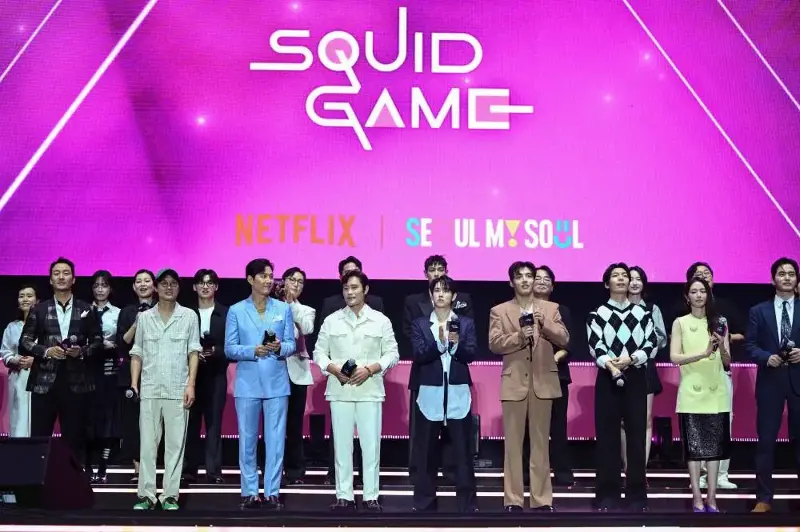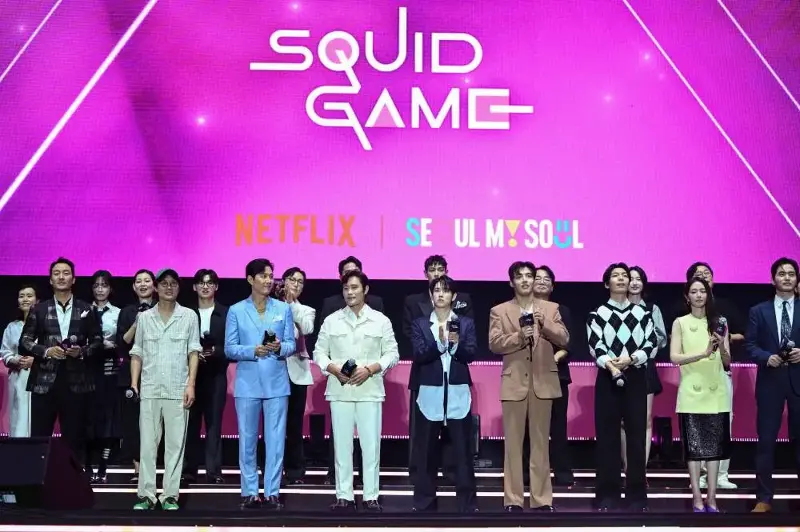
SEOUL – The final season of the global phenomenon Squid Game has made a powerful debut, topping Netflix's global charts in all tracked countries, even as critical and audience reactions remain divided.
According to US-based streaming analytics site FlixPatrol, data from Sunday showed that Squid Game ranked No. 1 in all 93 countries monitored by the platform, including the United States, United Kingdom, South Korea and others.
The finale was released on Friday, marking the end of a dystopian saga that began in 2021 and revolutionised Korean content in the global entertainment landscape.
Netflix is expected to release its official weekly rankings on Wednesday, which will give a clearer picture of viewership numbers.
However, the early FlixPatrol data signals an extremely strong opening.
Despite its popularity, the final season has drawn mixed reviews from audiences, in contrast to largely positive critical acclaim.
Yonhap reported on Rotten Tomatoes, the season currently holds an 83 per cent approval rating from critics.
However, the audience "Popcorn Meter" reflects a far lower approval rating of 51 per cent, suggesting a divide between expectations and delivery.
One of the critics highlighted by Rotten Tomatoes, Liz Shannon Miller, noted the show’s unflinching tone as a key strength.
"The world just keeps getting darker and darker, it seems and Squid Game has remarkably managed to keep pace with it just by being its own cruel self," she wrote.
Viewer feedback, however, painted a different picture. "This season felt dull and overly predictable," one review read.
"Aside from a few standout scenes, most of it failed to hold my interest."
From Korean Thriller to Global Blockbuster
Squid Game first premiered in September 2021 and quickly became a cultural juggernaut. Created by South Korean director Hwang Dong-hyuk, the series revolves around a deadly survival game involving 456 cash-strapped contestants who compete in a series of twisted children’s games for a grand prize of 45.6 billion won (approximately USD $38 million).
Its brutal yet emotionally resonant storytelling, coupled with social commentary on inequality, debt and desperation, struck a chord globally.
The series became Netflix's most-watched show ever at the time, reaching over 111 million viewers in its first month.
The show’s success catapulted its stars, including Lee Jung-jae, Jung Ho-yeon and Park Hae-soo, to international fame, while also sparking widespread interest in Korean-language media.

It won multiple accolades, including six Emmy Awards, making history as the first non-English language series to do so.
Following the massive success of Season 1, Netflix confirmed a second season and later announced that it would be the final installment. The streamer also expanded the franchise with a reality competition spin-off, Squid Game: The Challenge, which premiered in 2023 and further cemented the brand’s popularity.
High Expectations, Divided Reception
Given its global impact and the long wait for its conclusion, expectations for the final season were sky-high. The mixed audience reaction suggests that while the show has maintained its visual and thematic identity, not all viewers were satisfied with how it concluded the story.
Still, the massive viewership numbers and sustained global attention highlightsSquid Game’s legacy as one of the most influential TV shows of the decade.
More detailed performance metrics are expected when Netflix releases its global Top 10 rankings on Wednesday.
